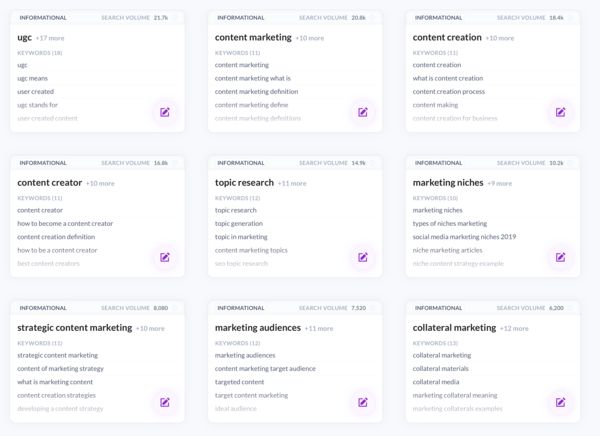
Discover what a niche is, how niche marketing works, and the essential research needed before building a niche website.
Many online entrepreneurs mistakenly believe that simply creating a niche website guarantees success. However, true business success requires thorough research to identify a profitable niche (pronounced – “neesh“).
Building a successful online business starts with finding a niche that pays, and then developing content, products, and services tailored to that niche. Enthusiasm and passion are important, but research is crucial before diving in.
Many new business owners skip this step, leading to products that fail to find a market. The key to success lies in finding a paying market, creating products for that market, and marketing directly to them.
While there are many popular niches, not all are profitable. It’s essential to focus on customers willing to pay for real solutions. By finding a loyal customer base, you can build a sustainable and successful online business.
Without proper research, your efforts may be wasted. Only by choosing a niche in a paying market can you achieve financial success with your online business.
Contents
What Is A Niche?
Niche, meaning an area of interest or product group that people search for online to solve their problems, is a critical concept in marketing.
It involves targeting a specific, well-defined segment of the market to fulfill unmet needs or desires, allowing businesses to focus their efforts and resources more effectively.
Examples of niches include dog training and the home décor or bathroom niche. A micro-niche, like Husky dog training or shower niche ideas, is more specific and can be more profitable due to less competition.
Finding profitable micro-niches with low competition and high search volume can lead to lucrative business opportunities, even through pay-per-click advertising.
What Is A Niche Market?
A niche market is a segment of the market that is focused on a specific product or service that addresses a particular need, want, or interest of a specific group of customers within a larger market. It is a way to solve problems for a financial reward, such as by providing information or selling products.
Niche markets have become a primary marketing strategy due to the saturation of digital marketing. This saturation makes it challenging to profit from broad markets, especially for new marketers.
However, new marketers can find success by targeting specific, less competitive niches. Successful affiliate marketers often target multiple niches, even unrelated ones, by researching profitable niche markets, creating a niche website, and marketing to their target audience.
Niche markets are characterized by their unique and specialized nature, often serving a smaller but more defined customer base. Niches can be found in any market, such as dogs, gardening, home décor, or writing, by identifying unmet needs and providing valuable offers.
Niche markets are often overlooked or underserved by larger companies, creating opportunities for businesses that can effectively cater to these specialized segments.
Niche marketers provide tailored solutions, unlike those targeting broader markets. This focused approach allows niche marketers to directly address the specific needs and challenges of their target markets.
What Is Niche Marketing?
Niche marketing is a strategy where a business focuses on a specific segment of the market and tailors its products, services, and marketing efforts to that segment.
This approach targets specific groups within a larger customer base and involves identifying a niche market with unique needs, wants, or preferences that are not being adequately addressed by mainstream providers.
By catering to these specific needs, niche marketers can create a strong competitive advantage, tap into a waiting market willing to pay for their offerings, and build a loyal customer base.
Niche marketing allows businesses to differentiate themselves from competitors, often leading to higher profitability and customer loyalty.
Niche Marketing Courses
Taking a niche marketing course can provide you with the knowledge and skills needed to effectively target specific customer segments, tailor your products or services to their needs, and ultimately, drive greater business success.
Here are some Udemy niche marketing courses to help you master the art of targeting specific customer segments and growing your business:
- Niche Marketing Secrets 2.0
- Target Marketing & Digital Marketing: Find Your Tribe & Niche
- Profitable Business Niche: Find An Ideal Business Niche
- Niche Research: How to Find a Profitable Niche Business Idea
- How to Research a Market Problem & Generate 100’s of Ideas
- The 9-to-5 Marketer’s Perfect Niche Research System
- Modern Niche Marketing: Niche Website for Beginners!
- Niche Websites Masterclass: Business, Research, Marketing
- Solopreneur Marketing: Find Your Profitable Niche
What Is An Example Of Niche Marketing?
Looking for some niche examples? Consider a yoga studio that specializes in yoga classes for seniors, aged 60 and above. It offers classes tailored to the unique needs of older individuals, focusing on gentle movements, flexibility, balance, and stress relief.
- Niche Example: Yoga for Seniors
- Target Audience: Seniors aged 60 and above.
- Unique Needs: Focus on gentle movements, flexibility, balance, and stress relief suitable for older individuals.
- Specialized Classes: Offer classes tailored to seniors, addressing common concerns like joint stiffness and limited mobility.
- Marketing Approach: Use channels frequented by seniors, such as community centers, retirement communities, and senior-focused publications.
- Product Offering: Provide specialized yoga equipment like chairs and bolsters for support and comfort.
- Benefits: Promote improved mobility, flexibility, and overall well-being tailored to the specific needs of seniors.
By catering to this niche market, the yoga studio differentiates itself from competitors and builds a loyal customer base within the senior community.
Why Is It Important to Choose a Niche Market?
Choosing a niche market is crucial for business success as it allows you to target a specific group of customers with tailored products and services. Conducting detailed market research helps you understand the needs, concerns, and desires of your target audience.
This research is essential for determining the viability and profitability of your niche. Once you’ve identified a niche, you can cater to your customers by offering a range of products at various price points.
For example, you might focus on beginner golf products, which have a broader appeal and can be sold at a lower price point to a larger customer base. Alternatively, you could offer advanced golf products or services at a higher price point, targeting a smaller but more specialized group of customers.
Understanding the life cycle of your customers within your niche can help you continue to sell to them over time and increase customer loyalty. Customers are willing to pay more for premium offerings if they see value in what you’re providing.
By focusing on a single niche market, you can create a unique product that sells for weeks, months, or even years to come.
How To Find a Profitable Niche Market
To determine the profitability of a niche, you need to consider how you can monetize it effectively.
#1. Explore ways to monetize
One common niche monetization method is advertising, such as placing banner ads or Google Ads on your website. However, this is often the least profitable option, as it can send visitors away from your site and advertisers need to make more from your traffic than you do.
A more profitable option is creating or selling products, ideally digital products like eBooks, or engaging in affiliate marketing where you sell products from other companies. Selling services is also an option.
The profitability of a niche depends on the availability of products that can be sold within that niche. Niches with a wide range of sellable products tend to be more profitable.
For example, niches like “Fortnite” may not be profitable because you can’t sell your merchandise related to the game, and advertisers may not be willing to pay much to advertise on your site if they can’t sell high-ticket items.
When choosing a niche, consider whether there are products that can be sold quickly and whether advertisers are willing to pay to appear on your website. Niches with a variety of sellable products are typically more profitable than those with limited options.
Some niches have the potential for high earnings due to the value they offer to customers. Niches that offer a form of investment, such as investing or business, can be profitable because customers expect to earn more money than they spend to acquire the information.
Similarly, niches that promise to change customers’ lives in measurable ways, like fitness, can be lucrative. People are willing to spend on fitness products and services because they believe it will lead to improved health, confidence, and overall well-being.
The price point of products or services in a niche also affects its profitability. Niches with higher-priced items, such as sports cars or travel, can generate significant revenue. Travel bloggers, for example, can earn money from advertising by appealing to travel agents and online booking sites.
If a niche doesn’t seem profitable, there are still ways to monetize it creatively. For example, you could earn commissions by helping people find hotels or expand into related areas as your site grows.
#2. Ask the right questions
Whether you’re choosing a niche for affiliate marketing, selling products, becoming an Instagram influencer, or starting a YouTube channel, it’s important to consider several factors to ensure you make an informed decision.
Here are some sample questions to ask:
- Which niche makes the most money?
- Which niche is best for affiliate marketing?
- Which niche pays the most on YouTube?
- Which niche has the highest traffic?
- Which niche is best for digital products?
- Which niche has low competition?
- Which niche is best for blogging?
- What niche should I choose for YouTube?
- Which niche has the highest RPM on YouTube?
- What niche is trending on YouTube?
- Which niche is best for Instagram?
- Which niche has the highest CPM?
- Which niche is best for dropshipping?
- Which niche is best for digital marketing?
These questions can help guide your decision-making process and lead you to a niche that aligns with your goals and objectives.
It’s important to carefully consider the value proposition and potential earnings of a niche before choosing to ensure its profitability.
#3. Explore trends vs. evergreen niches
When choosing your niche for an online business, it’s important to start by brainstorming ideas and considering why you’re interested in a particular niche.
Some people choose a niche because it’s currently popular or trending, but it’s essential to be prepared to work hard to stay ahead of the curve in such fast-moving markets. However, trends can be short-lived and may not offer long-term sustainability.
Events like presidential elections or the Olympics can create a temporary demand for related products, but this excitement fades quickly after the event ends. In these cases, you’ll need to find another niche to maintain profitability.
Alternatively, you can choose an evergreen niche, which is sustainable and can keep your business profitable for years. Evergreen niches may not generate the same level of excitement as trendy markets, but they offer long-term stability.
It’s crucial to find a niche that not only provides consistent profitability but also remains interesting and enjoyable for you to work with every day.
#4. Find profit in passion
Selecting a niche often aligns with personal interests and expertise. Being knowledgeable about a niche not only helps in understanding its potential profitability but also indicates a market for products or services within that niche.
If you are interested in a niche and purchase its products, chances are others share the same interest. However, it’s crucial to remember that consumer behavior can be unpredictable.
Even if you believe your idea is fantastic, without proper research, it could fail to resonate with the market, indicating a lack of demand. A common mistake new niche marketers make is investing in a niche with little value or targeting the wrong audience.
To succeed, listen to your audience, identify their problems, and offer solutions. Thorough research and understanding your potential client’s needs can reveal their willingness to take action to achieve their goals.
Conducting in-depth analysis before developing your product can save you from months of effort yielding no profit.
#5. Start as an affiliate marketer
Affiliate marketing is a beginner-friendly way to monetize your niche. By partnering with established companies like Amazon, you gain access to a vast array of products in high demand.
Commissions can range up to 15 percent, depending on the product and reward system. While creating and selling your products is ultimately more lucrative, affiliate marketing offers several advantages for beginners.
It allows for quick profitability with less initial investment of time and effort. Additionally, the products available through affiliate programs serve as a barometer for the niche’s profitability.
Affiliate marketplaces offer valuable insights into consumer behavior and purchasing habits. They reveal what people are buying and how much they’re willing to pay, aiding in product development and pricing strategies for future ventures.
Starting as an affiliate can help you avoid common pitfalls in niche marketing, such as pricing products incorrectly or developing unwanted items. It also provides a learning opportunity in marketing strategies and tactics, as affiliate programs often offer guidance and resources for affiliates.
Diversifying your income streams through affiliate marketing can increase your overall profitability. While initial commission checks may be modest, the potential for growth lies in your ability to promote and sell more products over time.
Resources:
- Affiliate Marketing Niche Website Masterclass
- Affiliate Marketing Autopilot: Amazon Niche Sites Made Easy
7 Effective Niche Research Strategies
Conducting thorough research before choosing a niche market is essential to ensure its viability and profitability, helping you set realistic goals and expectations for your business.
To start your niche research, focus on identifying the keywords used by your target audience. These keywords are crucial as they reveal the topics and products your potential customers are interested in.
#1. Identify profitable niche keywords
Use search engines to discover these keywords and understand the pain points of your niche customers. The Google Ads Keyword Tool and Surfer’s Keyword Research Tool are valuable resources for finding keywords related to your niche.
They provide insights into the specific words and phrases used by your target customers, helping you attract highly targeted traffic to your products and services.
Once you’ve identified relevant keywords, prioritize those with the most profit potential. Keywords with low competition, high search volume, and little cost or effort to rank high are ideal.
Google’s Keyword Planner and Surfer’s Keyword Research Tool can help estimate potential visitor traffic for each keyword in your niche, allowing you to focus on keywords that offer the greatest opportunity for success.
In-depth and focused research is essential for choosing a profitable niche. Test as many keywords as possible to ensure you’ve covered all potential search terms your customers might use.
Look for keywords with sufficient monthly search volume and assess if other businesses are already profiting from similar products or services. Utilize keyword research tools to gather this data.
To assess the profit potential of your niche keywords, add keyword-specific content to your blog, website, or social media pages and monitor their performance online.
This live testing strategy helps identify keywords that drive organic traffic, convert visitors into revenue, and rank higher on search engines, indicating greater profit potential.
#2. Organize your niche keywords
Organizing your niche keywords is crucial for effectively targeting your audience, optimizing your content, and building topical authority in your niche.
Grouping Keywords:
Divide your keywords into groups based on their specificity and relevance. For example, keywords like “underwater digital camera” and “digital camera case” can be grouped.
With Surfer’s Keyword Research Tool, you can generate your entire content strategy with dozens of relevant topics and keywords in a matter of minutes. It will help you organize thousands of search terms into groups that you can easily target with one content piece.
Minimum Searches:
Ensure each group contains keywords with a minimum of 2,000 searches per month. This helps identify groups of potential customers actively searching for similar products, services, or information.
Top Ten Keywords:
Select the top ten keywords from your research and aim for a total of 100,000 or more searches per month across these keywords. Use Surfer’s Keyword Research Tool to uncover more specific long-tail keywords related to these top keywords.
Money-Making Keywords:
Identify “buyer keywords” that indicate a readiness to purchase, such as brand names, model numbers, and terms like “buy” or “for sale.” These keywords signal potential customers who are likely ready to make a purchase.
With Surfer’s Keyword Research Tool, you can find out if your prospects are ready for purchase, weighing their options, or seeking general information. Use this intel to recognize what type of content you need and prioritize your keywords.
#3. Build topic clusters
According to this article by HubSpot, search engines like Google have changed their algorithm to favor topic-based content. As a result, websites are exploring a new way of linking related content under a “topic clusters” model.
Topical authority refers to the expertise and credibility a website or individual has on a particular topic or subject area. Websites or individuals with high topical authority are considered authoritative sources of information and are more likely to rank well in search engine results for related queries.
Building topical authority in your niche involves conducting keyword research to understand the language, topics, and interests of your target audience. Here’s how you can conduct keyword research to build topical authority:
Understand Your Niche:
Start by defining your niche and understanding the main topics, trends, and keywords related to it. Identify the primary topics and subtopics within your niche.
Use Keyword Research Tools:
Use keyword research tools like Google Keyword Planner, SEMrush, Ahrefs, or Surfer to find relevant keywords related to your niche. These tools provide insights into search volume, competition, and related keywords.
Surfer’s Content Planner will help you establish your topical authority and expertise, plan content clusters, and keep an eye on the content creation progress.
Identify Long-Tail Keywords:
Long-tail keywords are longer and more specific keyword phrases that target a niche audience. They often have lower competition and higher conversion rates. Identify relevant long-tail keywords for your niche.
Analyze Competitor Keywords:
Study the keywords that your competitors are targeting. This can provide insights into popular topics and keywords in your niche.
Focus on User Intent:
Consider the search intent behind the keywords. Are users looking for information, products, or services? According to the SEMrush blog, there are four main types of keywords to classify intent so you can tailor your content to match the user intent behind the keywords:
- Informational keywords to provide an answer to a specific question or general information.
- Navigational keywords to find a specific site or page.
- Commercial keywords to investigate brands or services.
- Transactional keywords to complete an action or purchase.
Surfer’s Content Planner leverages the power of machine learning to discover search intent for each topic so you can streamline your content efforts and dominate your niche faster.
#4. Analyze your niche competition
Understanding your competition is crucial when selecting a niche. Competitors, whether direct or indirect, can provide valuable insights into the market landscape.
While it’s important to be aware of your competition, avoid feeling intimidated by them. Begin by identifying the number of competitors in your potential niche. Conduct a Google search or use tools like Semrush to identify websites targeting the same keywords.
Look for sites using similar keywords in their URLs, titles, and anchor text. Semrush will help you discover which backlinks appeared in your competitors’ indexes to adjust, update, or improve your link-building strategy.
Assess the Domain Rank (DR) of competitor websites and relevant pages. Use SEO content audit tools like Ahrefs to check the average DR of the top ten websites for each keyword. Create a spreadsheet to track this information for analysis.
Next, create valuable content related to your niche to attract potential customers. Surfer’s Keyword Research Tool, will give you hundreds of keyword opportunities and ensure that all of your content is perfectly organized to support your head keyword and help you dominate your niche.
Monitor competitor pricing strategies and product offerings to understand market dynamics. Subscribe to competitors’ email lists to monitor their pricing strategies.
Analyze whether they offer higher-priced products, discounted items, or a mix of both. A sustainable market often includes higher-priced goods with reasonable profit margins.
While a niche with low competition is appealing, no competition could indicate an unprofitable market. Aim for a niche with a manageable level of competition and reasonable profit margins.
#5. Identify your ideal customer
In niche marketing, a significant portion of your profits often comes from a small percentage of your customers.
By taking care of your customers and offering them products and services that meet their needs, you can build a loyal customer base that continues to buy from you regularly.
Your ideal customer is someone willing to pay for a solution to their problem. To find them, offer valuable advice and solutions where they seek answers.
Provide free content to showcase your expertise, aiming to convert them into paying customers. Treat your free content like Costco samples, enticing customers to purchase more.
With Surfer’s smart algorithms, you’ll quickly find the best content opportunities, create a content strategy for months ahead, and write compelling pages based on data-driven guidelines.
By understanding and meeting their needs, you can build long-term relationships, leading to recurring income. Use email marketing to nurture these relationships, recommending products and services based on trust and expertise.
#6. Understand your target audience
After selecting a profitable niche, focus on understanding your target audience’s pain points. Identify their most urgent problems related to your niche to provide effective solutions and increase profitability.
Start by considering your own life and the challenges you face. Look for answers on niche forums, blogs, Yahoo Answers, and Quora. Use search terms like “help with,” “cure for,” or “advice on” followed by your keyword to find questions people are asking.
The solutions to your audience’s problems will drive profits, whether you offer physical products, services, digital products, or information.
Use online survey tools like Survey Sparrow and Google Ads to question your target audience directly. Offer incentives like discounts or free downloads to increase survey participation.
Aim for at least 1,000 responses to obtain a good cross-section of your market. The survey results will help you understand:
- What your audience is looking for
- How they want it
- The price they are willing to pay
Survey responses also provide language for your sales copy and valuable market intelligence for marketing and strategic decisions. Spend time researching your niche and ideal customer to gather product ideas for a niche willing to pay for solutions to their problems.
#7. Foster relationships in your niche
While profit is a key motivator for starting an online business, focusing solely on it can deter potential customers. After selecting a profitable niche, focus on building relationships within it.
Identify blogs, forums, and discussion boards related to your niche. Review these resources to identify prevalent issues, which can inspire content ideas for your blog, newsletter, and lead magnets.
Your social media presence is key to nurturing relationships in your niche. Regularly post content on social media to keep followers informed and encourage them to share your information.
Request re-tweets and shares to engage your audience and expand your reach. Engage with followers on platforms like Facebook, where likes, comments and shares amplify your reach.
Studies suggest that it takes at least 17 exposures to a brand before people recognize and understand it. Therefore, it’s crucial to make a positive first impression online, as there may not be a second chance to engage potential customers.
Email marketing is a vital tool for maintaining communication with your niche audience. Automating your sales process through email marketing can help you earn income around the clock.
Encourage visitors to sign up for your newsletter or lead magnet, such as a lead-generating quiz, to establish regular communication and build brand loyalty. Once subscribers are on your list, maintaining their interest can be challenging.
If subscribers unsubscribe, don’t take it personally. Learn from feedback to improve your strategies and keep your audience engaged.
An email newsletter is a powerful tool for delivering valuable content to your audience. Use it to address common issues, offer quizzes, and announce new products or services.
By leveraging insights from forums and discussion boards, you can provide solutions to your audience’s problems and establish yourself as an expert in your niche. Focus on building relationships and showcasing your expertise rather than using aggressive sales tactics.
Tailor your offers to your niche audience’s interests and needs, and consider whether to send offers separately or within your newsletter. Keep your content relevant to your niche to maintain engagement and meet your audience’s needs.
What Is a Niche Statement?
A niche statement is a concise and clear description of the specific market segment or audience that a business targets. It typically includes three key elements:
- Target Audience: This defines the specific group of people or businesses that the company aims to serve. It includes demographic information such as age, gender, location, income level, and interests.
- Problem Statement: This describes the specific problem or needs that the target audience faces, which the business seeks to address. It explains why the target audience would be interested in the products or services offered by the business.
- Unique Selling Proposition (USP): This highlights what sets the business apart from competitors and why the target audience should choose to do business with them. It emphasizes the unique value or benefits that the business offers to its customers.
A well-crafted niche statement helps a business define its market position, target its marketing efforts more effectively, and differentiate itself from competitors.
Crafting a compelling niche statement is like crafting a captivating story—it’s all about engaging your audience and making them want to learn more about your business.
Your niche statement should be a snapshot of what makes your business special, tailored to resonate with your target audience. Start by getting to know your audience inside and out.
Dive deep into their demographics, interests, and pain points. This will help you understand what makes them tick and how your business can make their lives better.
Next, craft a message that speaks directly to your audience’s needs. Highlight the specific problems your business solves and why you’re the best choice for the job.
Whether it’s your unique approach, top-notch customer service, or innovative products, make sure to showcase what sets you apart from the competition.
By refining your niche statement, you’ll not only clarify your business’s value proposition but also create a connection with your audience that goes beyond words.
This connection can lead to increased brand loyalty, word-of-mouth referrals, and ultimately, business success. Here are some niche statement examples for different types of businesses:
- Fitness Coaching: “We provide personalized fitness coaching for busy professionals who want to achieve their health goals without sacrificing their work-life balance.”
- Eco-Friendly Cleaning Products: “Our company offers a range of eco-friendly cleaning products for environmentally conscious consumers who seek effective and sustainable alternatives to traditional cleaning products.”
- Digital Marketing Agency: “We specialize in providing digital marketing services for small businesses in the hospitality industry, helping them increase their online visibility and attract more customers.”
- Online Pet Supply Store: “We offer a wide selection of high-quality pet products for pet owners who prioritize their pets’ health and well-being.”
- Career Coaching Services: “Our career coaching services are tailored for recent college graduates looking to kickstart their careers and navigate the job market successfully.”
These niche statements clearly define the target audience, the specific problem or need to be addressed, and the unique value proposition offered by the business.
Key Takeaways for Niche Marketing Success
To ensure success in your online business, it’s crucial to select a profitable niche. Identifying unmet consumer demands within a niche can provide your small business with growth opportunities. Having a unique product can reduce competition and increase your chances of success.
Thorough research is essential for determining the viability and profitability of a niche. This requires patience, effort, the right tools, and the ability to ask the right questions and understand the answers.
Neglecting to thoroughly research potential niche markets can lead to wasted time, energy, and money. While finding the right business niche may take time, the effort will be worthwhile when you begin to see your business grow and your profits increase.
Business tips & tools
- Ultimate Founders Checklist to Launch & Scale Your Startup
- Best Business Courses To Learn Entrepreneur Skills
- How To Write a Unique Selling Proposition (USP)
- How To Find Product-Market Fit for Market Success
- How to Scale and Grow Your Solopreneur Business
- How to Build a Successful Freelancer Business
- How to Start Creating an Online Presence for Your Business
- 10 Steps To Create a Startup Business Plan In Entrepreneurship
- How To Write The Perfect Elevator Pitch For Investors
- Startup Funding Demystified: Your Roadmap to Financial Success
- How to Create a Compelling Company Vision as an Entrepreneur
© 2024, Priya Florence Shah. All rights reserved.
Priya Florence Shah is a bestselling author and an award-winning blogger. Check out her book on emotional self-care for women. Priya writes short stories and poetry and chills with her two-legged and four-legged kids in her spare time.
Discover more from Business & Branding Tips
Subscribe to get the latest posts sent to your email.




















